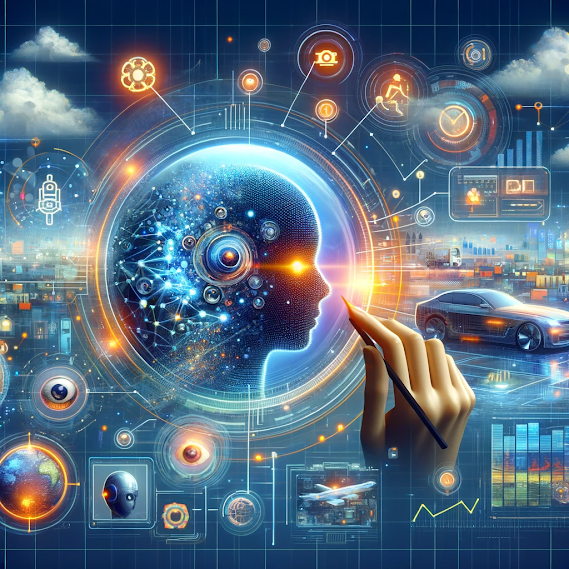AI Breakthrough: Making the Internet More Accessible with Ohio State's Revolutionary 'Web Agent'
AI Breakthrough: Making the Internet More Accessible with Ohio State's Revolutionary 'Web Agent'
In the digital era, the internet has become an indispensable part of daily life, offering a vast expanse of information and services at our fingertips. However, for many, especially those with disabilities, this digital realm remains a labyrinth of complexity and inaccessibility. Addressing this challenge, researchers at The Ohio State University are pioneering a solution - an AI-driven 'Web Agent' designed to navigate the internet using simple language commands, transforming the web into a more accessible space for all.
The Challenge of Digital Accessibility
The internet's evolution over the last three decades has been nothing short of remarkable. From a handful of web pages to billions of sites today, the internet has grown into a dense network of information and services. Yet, this growth has also brought about a complexity that can be daunting, especially for people with disabilities. Tasks that many take for granted, like booking flights or following social media accounts, can become Herculean endeavors for those facing accessibility challenges.
Ohio State's Innovative Solution: The 'Web Agent'
Researchers at Ohio State, led by Assistant Professor Yu Su, embarked on a mission to create an AI tool that can simplify these complexities. The 'Web Agent' they developed is not just another incremental improvement in accessibility technology; it's a paradigm shift. This #AI agent can perform complex tasks on any website using simple language commands, effectively acting as a bridge between the user and the intricate world of the web.
Mind2Web and MindAct: The Technological Core
The development of the 'Web Agent' involved creating Mind2Web, a first-of-its-kind dataset tailored for generalist web agents. This dataset embraces the real-world's dynamic nature, preparing the AI to handle websites it has never encountered before. Additionally, the team developed #MindAct, a two-pronged framework that utilizes both small and large language models. This innovative approach allows the 'Web Agent' to interpret and interact with various websites, significantly outperforming existing models.
Practical Applications and Beyond
The potential applications of the 'Web Agent' are vast and varied. From aiding individuals with disabilities in navigating e-commerce platforms to assisting in complex online research, the scope is immense. Moreover, this technology isn't just about making existing tasks easier; it's about enabling new opportunities and experiences for those who have been marginalized by the digital divide.
Navigating Ethical Considerations
With great power comes great responsibility, and the 'Web Agent' is no exception. While it offers incredible assistance, it also poses ethical challenges. The possibility of misuse, such as spreading misinformation or misusing financial data, is a concern that the researchers are acutely aware of. As such, they emphasize the need for stringent ethical guidelines and safeguards in the development and deployment of AI technologies like the 'Web Agent.'
Looking Ahead: The Future of Internet Accessibility
The research, supported by prestigious institutions including the National Science Foundation, U.S. Army Research Lab, and the Ohio Supercomputer Center, is not just a technological breakthrough; it's a step toward a more inclusive digital future. As #AI continues to evolve, we can expect to see a significant expansion in the use and capabilities of generalist web agents like the 'Web Agent,' especially given the public's growing interest in AI assistants for business.
A Bridge to an Inclusive Digital World
Ohio State's 'Web Agent' represents more than just an advancement in AI technology; it's a beacon of hope for a more inclusive digital future. By bridging the gap between human users and the complex digital world, this AI agent has the potential to transform the internet into a space that truly caters to everyone, regardless of their abilities. As we continue to advance technologically, it's innovations like these that remind us of the true purpose of technology - to serve humanity and improve the quality of life for all.


.jpeg)


Comments
Post a Comment